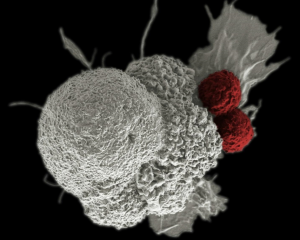The healthcare industry has always relied on data to inform decisions, improve patient outcomes, and drive innovation. However, the sheer volume of data generated daily—from patient records to clinical trials—poses a significant challenge. The advent of Artificial Intelligence (AI) offers a solution, transforming vast amounts of raw data into actionable evidence that can enhance healthcare delivery.
The Growing Need for Data Transformation
Healthcare data is diverse, originating from various sources like electronic health records (EHRs), wearable devices, and medical imaging. The complexity of this data often makes it difficult to extract meaningful insights. Traditional methods of data analysis are no longer sufficient to handle the growing volume and variety of information. AI, with its advanced algorithms and computational power, has the potential to bridge this gap, enabling healthcare professionals to convert data into evidence-based insights efficiently.
AI in Healthcare: A Game Changer
AI's role in healthcare is multifaceted. It can analyse large datasets quickly, identify patterns that might be missed by human eyes, and predict outcomes with remarkable accuracy. This capability is particularly valuable in personalised medicine, where treatments are tailored to individual patients based on their unique data profiles. By leveraging AI, healthcare providers can move beyond one-size-fits-all approaches, delivering care that is more targeted and effective.
AI's impact is also evident in diagnostics. Machine learning models can analyse medical images with a level of precision that rivals human experts. For instance, AI systems are now being used to detect early signs of diseases like cancer, often identifying abnormalities that are too subtle for the human eye. This early detection can lead to more timely interventions, significantly improving patient outcomes.
Converting Clinical Data into Actionable Evidence
One of the most critical areas where AI is making a difference is in the analysis of clinical data. With the ability to process and interpret complex datasets, AI can help convert clinical data into actionable evidence. This transformation is crucial for several reasons. First, it allows healthcare providers to base their decisions on the latest and most relevant information, ensuring that patients receive the best possible care. Second, it enables the continuous improvement of healthcare practices, as new evidence is integrated into clinical guidelines and protocols.
To achieve this transformation, healthcare organisations need to adopt a robust data infrastructure. A well-structured healthcare data model is essential for organising and standardising data, making it easier for AI systems to analyse and interpret the information. Additionally, tools like Piano Data Automation can streamline data processing, ensuring that the right data is available at the right time, in the right format. By integrating these technologies, healthcare providers can unlock the full potential of AI, turning clinical data into valuable evidence that drives better patient care.
The Role of AI in Evidence-Based Medicine
Evidence-based medicine (EBM) is the cornerstone of modern healthcare, ensuring that clinical decisions are based on the best available evidence. AI enhances EBM by providing a more efficient way to generate and analyse this evidence. For example, AI can rapidly sift through vast amounts of medical literature, identifying relevant studies and synthesising their findings. This capability allows healthcare providers to stay up-to-date with the latest research, ensuring that their practice reflects the most current evidence.
Moreover, AI can help identify gaps in existing evidence, guiding future research efforts. By highlighting areas where more data is needed, AI can drive the generation of new evidence, further strengthening the foundation of EBM. This continuous cycle of evidence generation and application is essential for improving patient outcomes and advancing healthcare as a whole.
Overcoming Challenges in AI Adoption
While the benefits of AI in healthcare are clear, its adoption is not without challenges. One of the primary obstacles is data quality. AI systems are only as good as the data they are trained on. Incomplete, inconsistent, or biased data can lead to inaccurate predictions and flawed evidence. Therefore, healthcare organisations must prioritise data quality, ensuring that their AI systems are built on a solid foundation.
Another challenge is the integration of AI into existing healthcare workflows. Many healthcare providers are already overwhelmed by the demands of their work, and adding new technology can seem daunting. To address this issue, it is essential to design AI systems that are user-friendly and seamlessly integrate into daily practice. This approach can help reduce the burden on healthcare providers, allowing them to focus on delivering high-quality care.
The Future of AI in Healthcare
The future of AI in healthcare is promising, with ongoing advancements in technology poised to further enhance its capabilities. As AI continues to evolve, it will play an increasingly important role in transforming data into evidence, driving more informed and effective healthcare decisions.
One area of potential growth is in predictive analytics, where AI could help forecast patient outcomes based on historical data. This capability could enable healthcare providers to proactively address potential issues before they become critical, improving patient care and reducing healthcare costs.
Another exciting development is the use of AI in personalised medicine. By analysing genetic data and other biomarkers, AI could help identify the most effective treatments for individual patients, moving healthcare closer to the goal of truly personalised care.
Conclusion
AI is revolutionising healthcare by transforming data into actionable evidence. From improving diagnostics to enhancing evidence-based medicine, AI's impact is profound and far-reaching. However, to fully realise the benefits of AI, healthcare organisations must overcome challenges related to data quality and integration. By adopting robust healthcare data models and leveraging tools like Piano Data Automation, healthcare providers can unlock the full potential of AI, driving better patient outcomes and advancing the field of medicine.
As AI continues to evolve, its role in healthcare will only grow, offering new opportunities to improve care, reduce costs, and ultimately, save lives. The journey from data to evidence is complex, but with AI, healthcare providers are better equipped than ever to navigate this path and deliver the best possible care to their patients.






